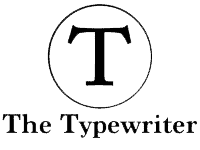Independent candidate, philanthropist and entrepreneur Andrej Kiska has become the new President of the Slovak Republic after securing 19% more votes than his opponent, Prime Minister (PM) Robert Fico, in the second round of elections. This outcome may well mark the start of a historic change in Slovak politics, mainly because Kiska is the first president without a Communist background. A large portion of the electorate is clearly disenchanted with traditional politics and has ousted several political veterans in favour of unknown candidates with little to no political experience.
The largely representative role of the future President was not what made the elections so significant. Rather, it was the fact that they were framed as a referendum on the PM’s performance in office. There are also those who argue that they were portrayed as an attempt to constrain Mr Fico’s seemingly boundless political influence. His ruling party Smer has been enjoying a majority in parliament since 2012.
Despite early polls indicating a clear first-round win for Fico, he only managed to obtain four per cent of votes ahead of Kiska, who secured 24% of the votes. Interestingly, the three candidates who finished after Fico are not affiliated with any party, yet together they managed to obtain 58% of the votes. The first round ended terribly for two well-known candidates with significant political experience, which shows that those who do not support Smer prefer candidates that are are uncorrupted by politics.
The second round of elections was marked by significant negative campaigning . Kiska was the target of an anonymously organised heavy leaflet anticampaign that slandered him as a loan shark because of his past as the founder of a consumer credit business. In the hope of deterring voters, the PM used an argument from these leaflets that Kiska was a dangerous supporter of Scientology. In an embarrassing turn, however, it was later found that the PM’s government had provided funding to a company represented by a Scientologist. While Kiska is also known for being the founder of Good Angel, a well-known Slovak charity supporting children with cancer, this was also turned against him by those who claimed that his philanthropy was only a publicity stunt. Nonetheless, these accusations appear to have fallen flat with voters.
However, the elections were was not so much about supporting Mr Kiska as they were about protest-voting against the PM. The more successful first-round candidates were virtually all united against the PM and he only has himself to blame. His adversarial political style and his party’s associations with with corruption, populism and its dominance in the sphere of power may have gained him flocks of supporters, but they also isolated him from potential political allies and certain groups of voters. I personally find it interesting that I have not met anyone from Slovakia abroad who would be pro-Fico, which could even be connected to the brain drain affecting the country. Consequently, right-wing voters may have been mobilised by the notion of stereotypically easily manipulable ‘Fico-voters’ deciding the future of their country. Of course, such stereotyping is nonsense and prevents fruitful debate but seeing it confirmed in video interviews is difficult to stomach.
The impact of the elections goes far beyond the presidency. Two years after a landslide election of the socialist Smer, the political right still finds itself disintegrated and leaderless. That will probably change now. Radoslav Procházka, a presidential candidate who finished only 4% behind Mr Kiska in the first round, is giving up his seat in the Parliament to form a new political party. Given his popularity, his new party has the potential to have a profound effect on Slovakia’s political landscape and mark the start of a new political era in Slovakia.
While the election results appear to beckon the untimely end of Fico’s political career, his legacy is far from over. He did not lose ‘the referendum on his government’ because of a sudden decline of support. Although he committed huge mistakes by not appealing to new voters or by standing for the presidency during his tenure, his failure can be attributed to his inability to persuade his sympathisers that he would make an even better President than a Prime Minister. It will be interesting to see how he responds to his first political setback. The political turmoil in Ukraine may help him to build an image of a resolute and internationally respected leader, especially if he manages to emphasise enough Slovakia’s diplomatic role in securing European gas supplies.
Meanwhile, the new president will have to cope with the high expectations of change while trying to unify a polarised Slovak society. Kiska’s supporters are aware that he cannot pursue radical change from his position, but they are content with the message that his election sends to politicians: voting for politically inexperienced candidates may be risky, but it is a risk worth taking.
